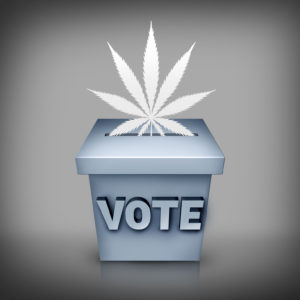Supporters of legal weed may have felt a bit of buzz on the state House floor last week when members passed a bill legalizing recreational marijuana. But it was almost certainly an artificial high.
Unlike previous efforts to join the rest of New England in the recreational cannabis club, HB 75 wasn’t a complicated attempt to reach a comprehensive deal regarding taxes, licensing, and enforcement. Instead, it simply legalized cannabis for persons 21 years of age or older, and removed references to marijuana from the state’s criminal drug laws.
What this cannabis bill does have in common with previous versions, however, is the opposition of many Republicans in the state Senate, and a veto pledge from a Republican governor — in this case, Gov. Kelly Ayotte.
HB 75 bill had been slapped with an “inexpedient to legislate” (ITL) designation last month by the House Criminal Justice and Public Safety Committee. But when it came to the House floor last Thursday, lawmakers voted 167-190 against a final ITL designation, and then advanced it on a voice vote.
A total of 67 Republican lawmakers voted along with 123 Democrats against killing the measure.
“Progressive Caucus members today led the floor fight to pass legislation legalizing cannabis for anyone 21 years or older, successfully passing HB 75 through the House with a majority vote,” the New Hampshire House Progressive Caucus boasted in a social media post following the vote.
Despite the prospect of an all-but-certain legislative death, Daryl Eames, founder of the New Hampshire Cannabis Association, told NHJournal he was pleased with Thursday’s outcome.
“We certainly love that the New Hampshire House continues to make statements representing the will of the people in our state and support them continuing to pass great cannabis legislation,” Eames said. “On the flip side, until or unless we have 16 senators willing to stand up against party and pressure and tell the governor they will pass a great bill for the state of New Hampshire with or without the Corner Office, we suspect it will be killed in the Senate.”
Eames said the Governor’s Office and the Senate “will most likely continue to ignore their constituents on this issue for the foreseeable future.” Ironically, it was in the House where marijuana legalization advocates suffered their most stinging defeat.
Last summer, House lawmakers voted to reject a compromise bill that had been crafted by a bicameral conference committee and had the (albeit reluctant) support of former Gov. Chris Sununu.
Last year’s compromise legislation would have established a state-run cannabis franchise model regulated by the Liquor Commission, capping pot stores at 15 statewide.
It was tabled by a five-vote margin, 178-173, effectively killing it.
Sen. Daryl Abbas (R-Salem) served on a special committee tasked with crafting the legislation in line with Sununu’s stipulations. He was one of several who blamed House Democrats for sinking the bill.
Democrat Rep. Alissandra Murray urged the House to pass HB 75.
“Previous attempts have been too complicated to get full approval from this body,” Murray told colleagues from the lectern ahead of the vote. “Cannabis is easily accessible in every single state around us.
“Therefore, it is impossible to prevent its presence in our communities, which means we are arresting and criminalizing our citizens unjustly for participating in activities that should be legal.”
New Hampshire is the lone New England state that has yet to legalize the recreational use of marijuana.
Rep. Jodi Newell (D-Keene) made a passionate plea in favor of the bill, noting that her fiance died as a result of a heroin overdose while alcoholism claimed the life of her older brother.
“These substances kill our loved ones, yet the latter is perfectly legal,” Newell said, referencing booze. “We trust our citizens over the age of 21 to consume alcohol responsibly, and rightly so.
“But somehow, we still maintain that our citizens cannot be trusted to consume cannabis responsibly.”
Newell argued an “overwhelming majority of Granite Staters implore this body to end the criminalization of cannabis.”
“To end the fear of unnecessary disruption to people’s lives in the event they find cannabis to be their nighttime sleep aid, their mood enhancer, or their morning pick-me-up,” she added.
A University of New Hampshire Survey Center poll conducted last June found six in 10 New Hampshire residents support a bill to legalize recreational marijuana.
On the flip side, polls show a rising backlash toward marijuana use as it has become more common. A Gallup poll released in August found the share of Americans who view the impact of pot as somewhat or very negative has risen since 2022.
Rep. Terry Roy (R-Deerfield), chairman of the House Criminal Justice and Public Safety Committee, urged members in his floor remarks to accept his body’s ITL designation and reject the bill.
“If we decide to legalize marijuana, then we should do it correctly in an orderly way,” Roy said. “I know we’ve tried 50 different bills over the last few years and nothing seems to go through.
“Let me tell you, this one ain’t going to go through either.”





